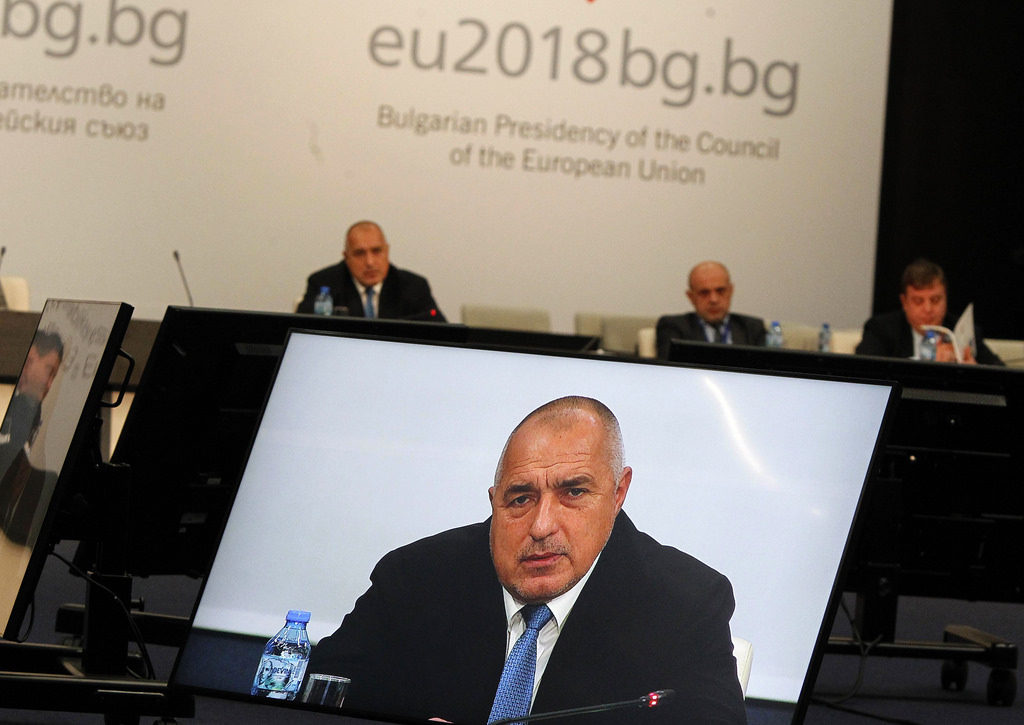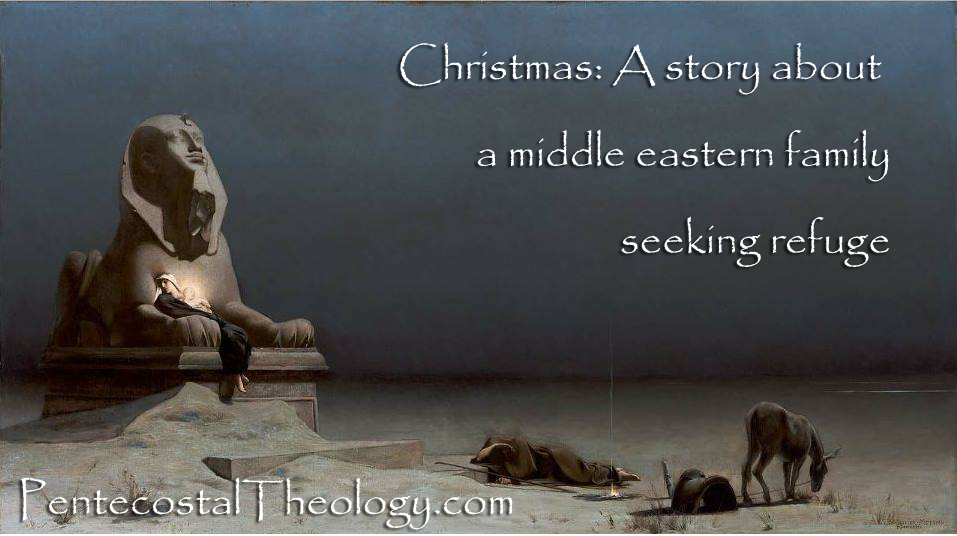Looking Over the Wall (now on Kindle)
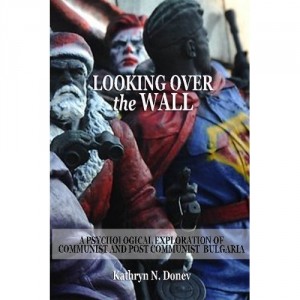 Looking Over the Wall: A Psychological Exploration of Communist and Post Communist Bulgaria
Looking Over the Wall: A Psychological Exploration of Communist and Post Communist Bulgaria
This book is the result of over a decade of research and personal experiences of living in Bulgaria for the past seven years. It embodies documents, articles, personal interviews and essays dealing with psychological explorations of communist and post communist Bulgaria. Along with a historical overview of Bulgaria, the author presents the development of psychotherapy throughout the country and addresses future concerns for the state of counseling within a post communist context. Furthermore, the author examines the Pentecostal experience of the Bulgarian evangelical believer drawing on a paper presented at the 36th annual Society of Pentecostal Studies Conference. As well included is original research which develops a theoretical account of the sequences of internal motivation in addition to student survey results regarding counseling practices from the first Master’s in Chaplaincy Ministry Program in Europe at the Bulgarian Evangelical Theological Institute.
Get your Kindle copy today at: Amazon Kindle Store
2020 Vision for Bulgarian Evangelical Churches outside of Bulgaria
January 25, 2018 by Cup&Cross
Filed under Featured, News, Publication, Research
 Over a decade ago, after publishing Bulgarian Churches in North America: Analytical Overview and Church Planting Proposal for Bulgarian American Congregations Considering Cultural, Economical and Leadership Dimensions, we purposed to explore the possibility of implementing the church planning program among Bulgarian Diasporas in various destination countries of migration.
Over a decade ago, after publishing Bulgarian Churches in North America: Analytical Overview and Church Planting Proposal for Bulgarian American Congregations Considering Cultural, Economical and Leadership Dimensions, we purposed to explore the possibility of implementing the church planning program among Bulgarian Diasporas in various destination countries of migration.
With this in mind, we carried the vision for establishing 20 Bulgarian churches outside of Bulgaria by the year 2020. Cyprus, the United Kingdom and Canada were among the first to successfully implement our program. Bulgarian migrant communities in France, Italy and especially Spain and Germany followed with great enthusiasm – there are 7 Bulgarian evangelical churches active in Span today, and 18 in Germany.
Of course, not all parts of the program proved to be efficient. The program’s modules and training that was implemented, however, have produced 47 strong church plants thus far and the number is growing every month. The program proposed has been confirmed by the leadership we have received from the Holy Spirit. Our commitment to seize the opportunity and work toward adding more Bulgarian churches by the year 202 has by far surpassed all expectations.
READ ALSO:
- Global Network of Bulgarian Evangelical Churches outside of Bulgaria (2018 Report)
- Unrealized Spiritual Harvest as a Paradigm for Cross-Cultural Ministries among Migrant and Disfranchised Ethnic Groups in America Today
Ancient Recipes of Bulgaria, Second Edition
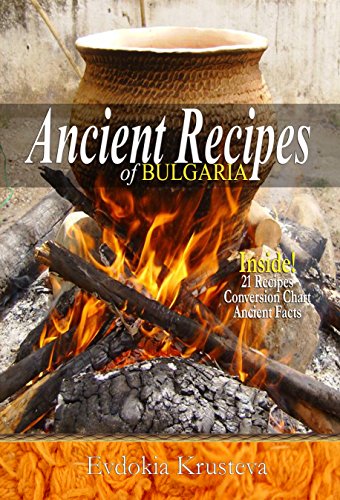 Ancient Recipes of Bulgaria, Second Edition
Ancient Recipes of Bulgaria, Second Edition
By Evdokia Krusteva
This cookbook features nearly two dozen truly ancient recipes of Bulgarian cooking. Some of these dishes are distant relatives to ones found in ancient Roman manuscripts believed to have been compiled in the late 4th or early 5th century AD. Others are among those far before the time of Christ. As Bulgaria is a country of oral history, recipes are typically not written, but passed down from one generation to the next by experiencing the method of preparation. With nearly every dish in Bulgarian cooking comes a story and custom. This cookbook attempts to preserve these century year old stories for many years to come so they can continue to be passed down.
The Bulgarian presidency of the Council of the European Union
January 15, 2018 by Cup&Cross
Filed under Featured, News, Publication
The priorities of the Bulgarian presidency are driven by its motto: ‘United we stand strong’, which is also the motto of the coat of arms of the Republic of Bulgaria. The presidency will work with its partners on unity among the member states and the EU institutions to provide concrete solutions to build a stronger, more secure and solidary Europe. During the next 6 months, the presidency will focus on four key areas: future of Europe and young people, Western Balkans, security and stability and digital economy.
Life and Ministry of Ivan Voronaev (First Edition)
January 10, 2018 by Cup&Cross
Filed under Books, Featured, News, Publication
![51Sa1IcA8OL._SY344_PJlook-inside-v2,TopRight,1,0_SH20_BO1,204,203,200_[1]](https://cupandcross.com/wp-content/uploads/2014/03/51Sa1IcA8OL._SY344_PJlook-inside-v2TopRight10_SH20_BO1204203200_1.jpg) Since we began the research on the Life and Ministry of Ivan Voronaev over a decade ago, several new valuable sources have become available. Among them are never published family correspondence and travelling journals.
Since we began the research on the Life and Ministry of Ivan Voronaev over a decade ago, several new valuable sources have become available. Among them are never published family correspondence and travelling journals.
From Bulgaria, after remaining hidden for over half of a decade during the Communist Regime, the earliest Book of Minutes of the Executive Committee of the Bulgarian Pentecostal Union (1929-1933) has resurfaced. It contains detail information on the 18 Pentecostal congregations started in Bulgarian in 1921-1922 and the establishment of the Pentecostal Union.
In Russia, Zaplishney’s autobiography and a FSB confirmation of the original order for Voroanev’s execution has been discovered. Along with them, several volumes of Sevlag prison papers have shed light on the exile years of the first Pentecostal leaders there.
Now that this new information has been made available to us, a new expanded edition for the 90th Anniversary of the Bulgarian Pentecostal Union in 2018 is in order. With this in mind, we have felt compelled to release the remaining first print Voronaev monograph for a fraction of its value while supplies last.
Convention on Gender Violence Draws Backlash in Bulgaria
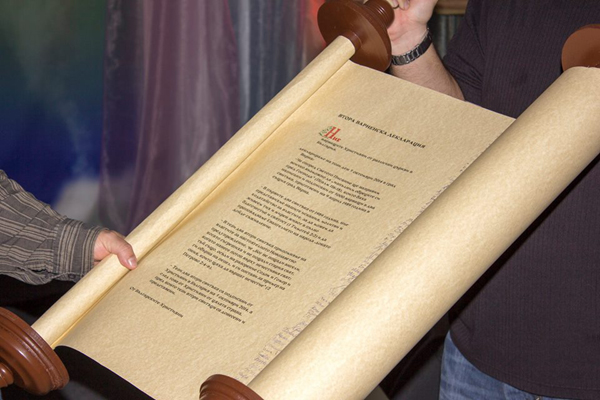 Moves to ratify the so-called Istanbul Convention of the Council of Europe are encountering strong opposition both from parties in the Bulgarian government and the opposition.
Moves to ratify the so-called Istanbul Convention of the Council of Europe are encountering strong opposition both from parties in the Bulgarian government and the opposition.
Members of the Bulgarian government and of the main opposition Socialist Party have joined forces to oppose the government’s decision to pass the so-called Istanbul Convention on gender-based violence to parliament for ratification.
The cabinet approved a national program for prevention of domestic violence on Wednesday, and, as a part of it, advised MPs to ratify the Council of Europe’s convention on preventing and combating violence against women and domestic violence, which was adopted in Istanbul in 2011. Following the government session, however, the Deputy Prime Minister in charge of social and economic policies, Valeri Simeonov, from the nationalist United Patriots, told the media that eight of the 21 ministers had voted against the document.
“Not only the United Patriots [who have four ministers] but eight ministers voted against,” he said. The names of the ministers who opposed the convention will be revealed on Friday, when the minutes of the cabinet meeting are published. The plan to pass the Convention, which Bulgaria signed in April 2016, for ratification in parliament, drew sharp criticism especially from one of the parties from the United Patriots Coalition, VMRO.
On December 28, the party, led by the Minister of Defence and Deputy Prime Minister, Krasimir Karakachanov, published a statement which claimed that, through the convention, “international lobbies are pushing Bulgaria to legalize the ‘third gender’.
The party declared itself firmly against the document, which it accused of “introducing school programs for studying homosexuality and transvestism and creating opportunities for enforcing same-sex marriages”. Over 30 civil and religious organizations had sent an open letter to Karakachanov, urging him not to allow ratification of the convention. As a result, he said, he had given a negative opinion of what he called the “scandalous text”. What has most upset nationalists is mention of the term “gender” as a social construct as opposed to the biological “sex” in the text of the document, although the explanatory report to the convention notes: “The term ‘gender’ … is not intended as a replacement for the terms ‘women’ and ‘men.’”
2018
January 1, 2018 by Cup&Cross
Filed under Featured, News, Publication
2017 in Retrospect
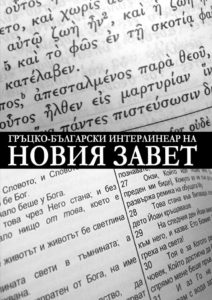 Grateful for several revivals in 2017, along with our regular preaching schedule in Bulgaria. We held our annual Harvest Campaign and celebrated the 20th Anniversary of our Electronic Bible with a reading through the whole Bible in a day. For the 500th Anniversary of the Reformation on October 31, 2017 we were finally able to publish a decade-long project: “Greek-Bulgarian New Testament Interlinear.”
Grateful for several revivals in 2017, along with our regular preaching schedule in Bulgaria. We held our annual Harvest Campaign and celebrated the 20th Anniversary of our Electronic Bible with a reading through the whole Bible in a day. For the 500th Anniversary of the Reformation on October 31, 2017 we were finally able to publish a decade-long project: “Greek-Bulgarian New Testament Interlinear.”
Unto us a son is given
Restorative Significance of the Gifts Given to the Christ Child
 It is recorded that the Magi gave the Christ Child three gifts upon his birth; gold, frankincense and myrrh. We understand the gold today as a physical gold, representing His kingship and the other two as an incense to symbolize his priestly role and oil for his foreseen death. Yet, what if the gold that was given to the Christ child was for another reason and perhaps it was not “gold”, but a golden spice or a golden salt. Of the gifts, one could be ingested, one could be inhaled and one could be absorbed. If we look at all from a medicinal viewpoint, these three gifts may have more symbolic meaning than once perceived.
It is recorded that the Magi gave the Christ Child three gifts upon his birth; gold, frankincense and myrrh. We understand the gold today as a physical gold, representing His kingship and the other two as an incense to symbolize his priestly role and oil for his foreseen death. Yet, what if the gold that was given to the Christ child was for another reason and perhaps it was not “gold”, but a golden spice or a golden salt. Of the gifts, one could be ingested, one could be inhaled and one could be absorbed. If we look at all from a medicinal viewpoint, these three gifts may have more symbolic meaning than once perceived.
MAGI
So who exactly were the “Magi”. We know that they followed the stars and were from the East. The East was a region of the world known, at the time, for its great knowledge of natural remedies. So it is not unimaginable that they could have been natural healers or homeopathic doctors of their times. This could explain the hypothesis that all three gifts had a therapeutic purpose in the life of Christ.
GOLD
If we view the gold in compound form, it can be used in the treatment of rheumatoid arthritis. Gold is a type of disease-modifying anti-rheumatic medicine (DMARD) that dampens down the underlying disease process. This meaning it treats inflammation and stops the immune system from attacking its own body’s tissue. Gold can also be used to treat other auto-immune conditions. If we think of the gift of gold as a spice, the first one that comes to mind is curcumin which is known as the “golden spice” of the East. It also has the ability to reduce inflammation and provides immune system support along with anti-cancer effects. This golden spice seems to have the ability to kill cancer cells and prevent their regrowth.
FRANKINCENSE
When frankincense is inhaled, it is the most effective method of delivery to send a chemical message to the brain. The oils in frankincense have a high level of sesquiterpenes, an agent found in plants that has the ability to go beyond the blood-brain barrier. Sesquiterpenes from frankincense increase oxygen availability in the limbic system of the brain which leads to an increase in secretions of antibodies, endorphins and neurotransmitters. In layman’s terms it has the ability to go straight to the brain without traveling through the bloodstream and brings healing properties to reset and repairs its internal communications. It’s almost as if it can unlearn a disease or degenerative disorder passed down in our DNA.
The amygdale glad of the brain’s limbic system plays a major role in storing and releasing emotional trauma. The only way to stimulate this gland is with fragrance or the sense of smell. This may help us understand how we are able to release emotional trauma with aromatherapy of frankincense.
MYRRH
Myrrh also can arouse the limbic system to release emotional trauma. It also has anti-inflammatory and immune boosting properties among with many other health benefits. Once applied to the body, oil molecules pass through dermis, into the capillaries and directly into the bloodstream.
The substance known as monoterpenes are present in almost all essential oils. They are what enhances the therapeutic values of other components and are the balancing portion of the oil. They inhibit the accumulation of toxins and restore the correct information in the DNA of the cell. Sesquiterpenes are also found in myrrh and delete the bad information in cellular memory or memories that are hypothesized to be stored outside the brain in the body.
REMARKS
This is quite interesting, to say the least, that all three gifts can protect the body from such dramatic trauma. The body of Christ from infancy was being safeguarded against what was to become his destiny of great suffering and pain. The cathartic releasing of emotional trauma provided with the gift of frankincense would lay the foundation for the harrowing experience of death by crucifixion.
All three offerings had anti-inflammatory properties and helped support the immune system by preventing the system from attacking its own body’s tissue. Christ’s earthly body was protected right down to the minuscule cellular level. Even the cellular memory of his body was restored with these gifts. At a molecular level, His Heavenly DNA was being guarded. The gifts purposed to protect the Christ child from disorders genetically passed down and to restore the information in the cells of the DNA.
One gift was for the body, one was for the blood and one was for the brain. One gift purposed to go beyond the blood-brain barrier while the other was via the bloodline. The Christ child was both a descendant of a Heavenly father and an early mother. The father’s bloodline was supernatural while the mothers’ was a physical line.
We will never truly understand this side of Heaven all the care that went into protecting the Christ child. Yet since we are descendants of a Perfect Deity, we too have this promise of complete restoration of curses, sickness, disease, imperfections, degenerative disorders, mental impairments, and any physical, mental or spiritual attack of the body, mind and soul. We have been given a choice of living a life of blessing or curse. Just as the gifts of the Christ child had to be accepted, we too much choose to accept this promise.


